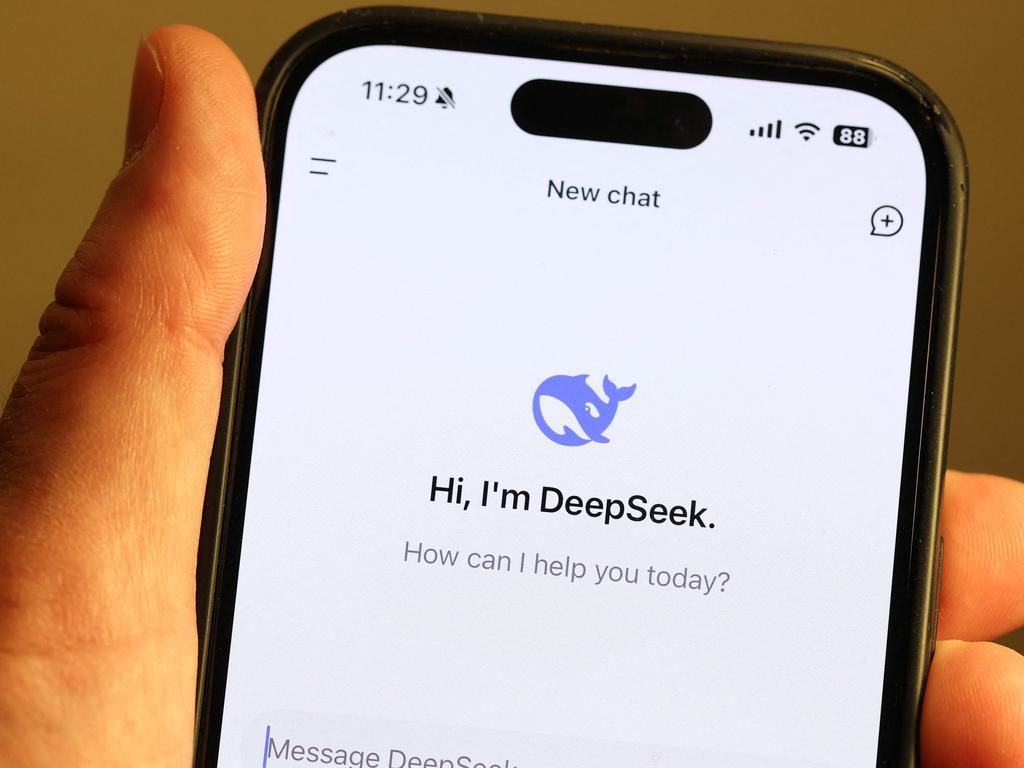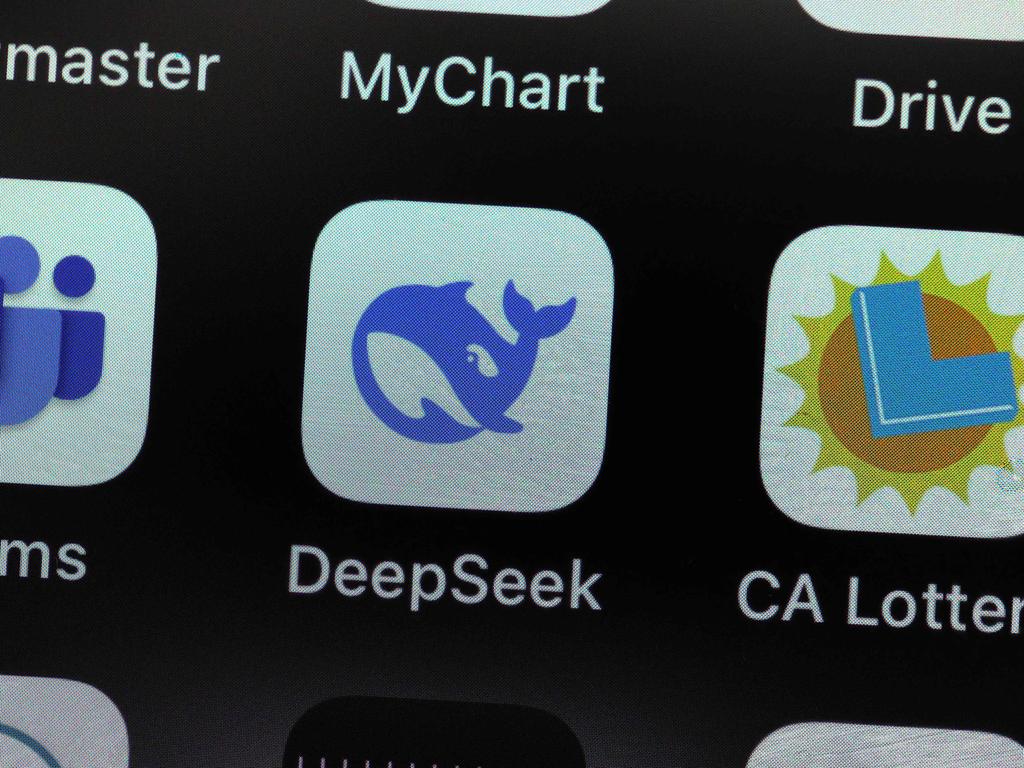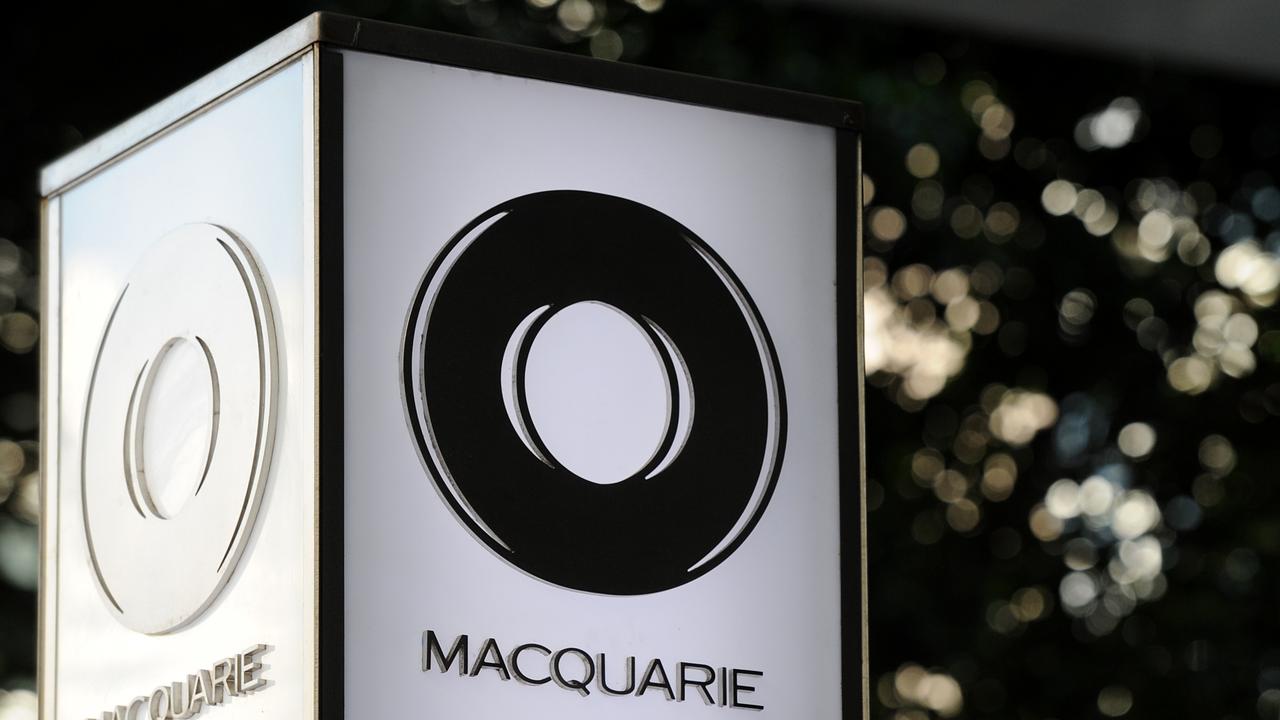DeepSeek threatens an AI revolution outside of the US, experts warn
Experts say China’s answer to ChatGPT has taught the world the US isn’t the only country capable of developing AI at scale and may pave the way for an AI revolution.
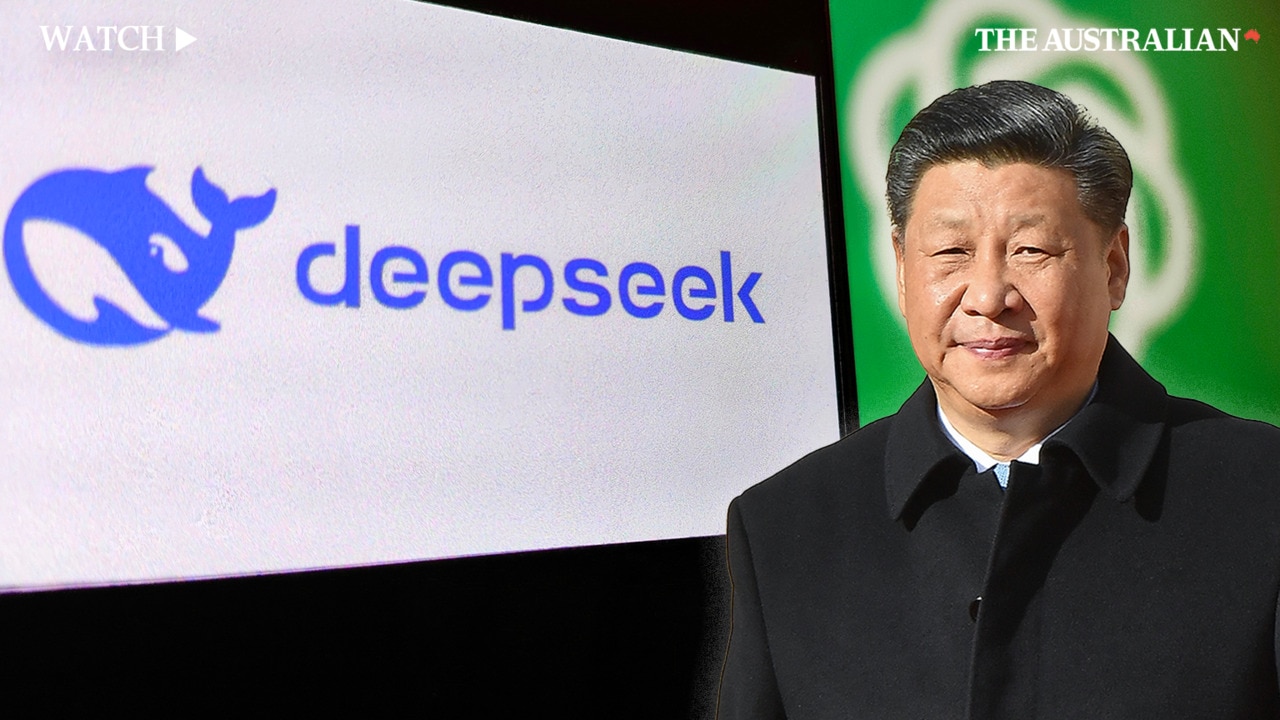
Business
Don't miss out on the headlines from Business. Followed categories will be added to My News.
China’s answer to ChatGPT should be a “wake-up call” for the US, Donald Trump has warned, as the new AI technology sent tech stocks across the globe tumbling.
The US President said American companies now needed to be “laser-focused” and be “competing to win” as experts have warned that the Chinese technology threatens an AI revolution.
“The release of DeepSeek, AI from a Chinese company, should be a wakeup call for our industries that we need to be laser-focused on competing to win,” he said.
DeepSeek’s generative AI chatbot caused a major upset overnight, sending down the value of several of Australia and the US’s largest tech companies, while investors expressed uncertainty about the future of AI.
Industry experts have also expressed mixed views, with University of Sydney emerging technology expert Dr Raffaele Ciriello commenting the Chinese model had effectively “debunked” the enormous costs associated with AI.
“DeepSeek exposes the unsustainable costs of scaling AI models, debunking the myth that massive data centres consuming enormous amounts of fossil fuels and water are necessary for progress,” he said.
“Instead, it highlights the need for ethical AI development focused on sustainability, practical innovation and robust democratic oversight. Strong guardrails are essential to ensure AI serves humanity without exacerbating environmental and societal harms.”
Morningstar equity analyst Javier Correonero shared a similar view: “The investment case for the AI supply chain until now was that more spending led to better outcomes for AI models. Big tech firms Microsoft, Google, Amazon and Meta have deployed hundreds of billions to purchase GPUs from Nvidia and ensure chip supply to satisfy the insatiable demand for AI,” he said.
“Deepseek is challenging that hypothesis, as its models Deepseek’s V3 model, developed for just $US5.5m — compared to the estimated $US100m budgets of peers like GPT-4o and Llama 3.1 — reportedly utilises 11 times less GPU hours than Llama 3 405B while delivering comparable performance.”
Mr Correonero said he expected some fallout to hit AI chipmakers and demand in the medium term.
The DeepSeek upset arrives just days after US President Donald Trump announced Project Stargate, a $US500bn ($797.22) commitment involving OpenAI and Oracle to build AI infrastructure in the US and outcompete China.
Professor Geoff Webb, from Monash University’s Department of Data Science & AI, said DeepSeek had proven China wasn’t locked out of the AI race and billion-dollar investments were not a barrier for entry.
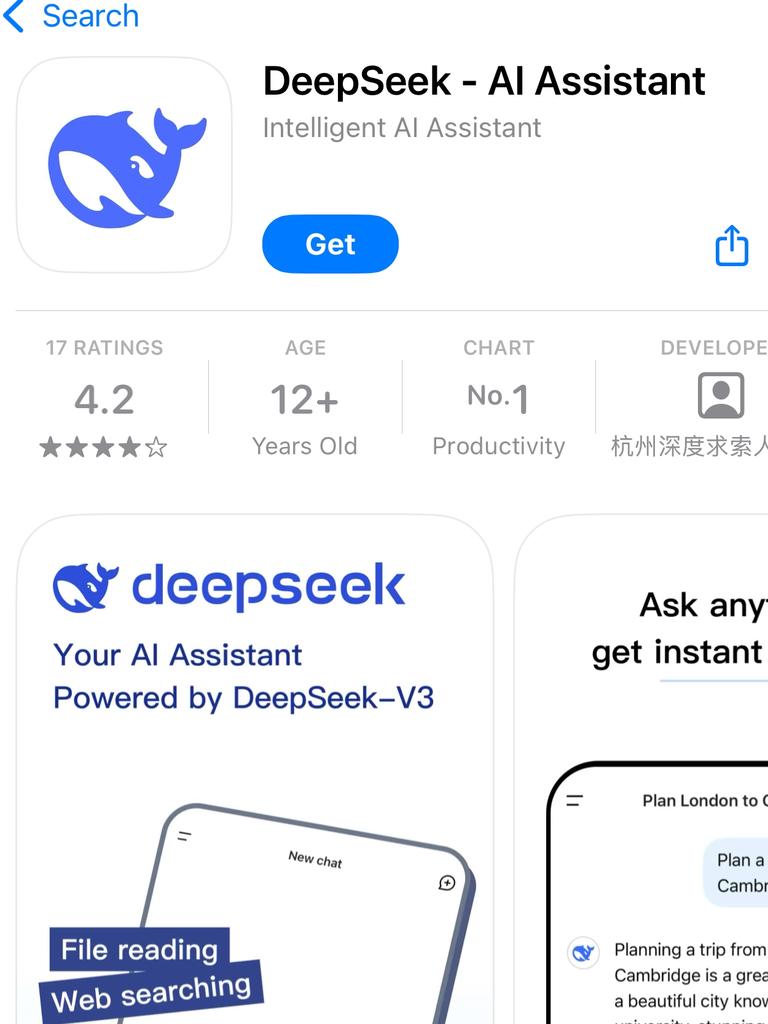
“Until now it has seemed that billion dollar investments and access to the latest generation of specialised NVIDIA processors were prerequisites for developing state-of-the-art systems,” Professor Webb said.
“This effectively limited control to a small number of leading US-based tech corporations. Due to US embargoes on exporting the latest generation of NVIDIA processors, it also locked out China.”
If DeepSeek’s claims are true, that it was able to develop its model at a fraction of the cost of competitors, then it could redefine the AI industry, Professor Webb said.
“If this is true, it means that the US tech sector no longer has exclusive control of the AI technologies, opening them to wider competition and reducing the prices they can charge for access to and use of their systems,” he said.
“Looking beyond the implications for the stock market, current AI technologies are US-centric and embody US values and culture.
“It also has the potential to make AI more accessible for researchers around the world, both for developing new technologies and for applying them in diverse areas — including healthcare.”
A spokesman for local data centre operator CDC said DeepSeek’s entry to the market would only increase data centre demand.
“As open and closed source AI models continue to evolve, we expect more organisations to invest in leveraging these capabilities to improve productivity, reduce corporate administrative load and deliver on their business goals,” he said.
“These trends, along with the continued acceleration of data growth and utilisation means that the digital infrastructure underpinning them, including data centres and communication networks, will need to grow to continue to meet the customer demand.”
While RBC analysts forecast some impact on tech stocks, they believed DeepSeek had brought forward the commoditisation of AI models.
“While we expected commoditisation to ultimately happen over time, DeepSeek may have pulled forward the timeline on this meaningfully,” RBC analysts noted.
“Having said that, companies like OpenAI also have the opportunity to move ‘up the stack’ into more differentiated areas, versus just building foundational models.”
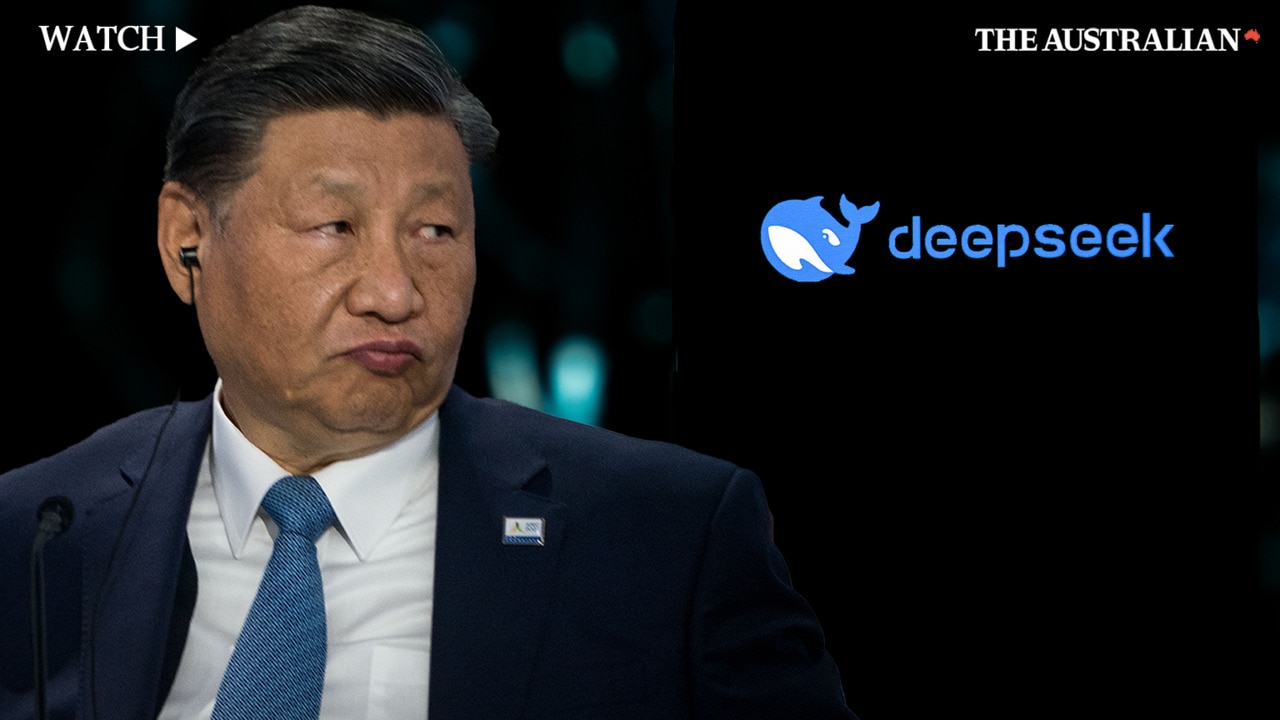
Citi analysts remained upbeat about local data centre developer NextDC, which they believed would be able to forgo any short-term pain with several contracts under its belt.
Network services company Megaport would also not see a direct negative impact, with Citi analysts confident cheaper models could result in increased adoption of AI and large language models, providing a potential boost to the company and the 860 global data centres it has exposure to.
Originally published as DeepSeek threatens an AI revolution outside of the US, experts warn


